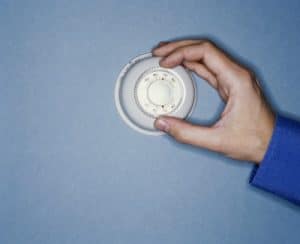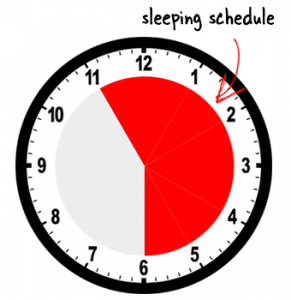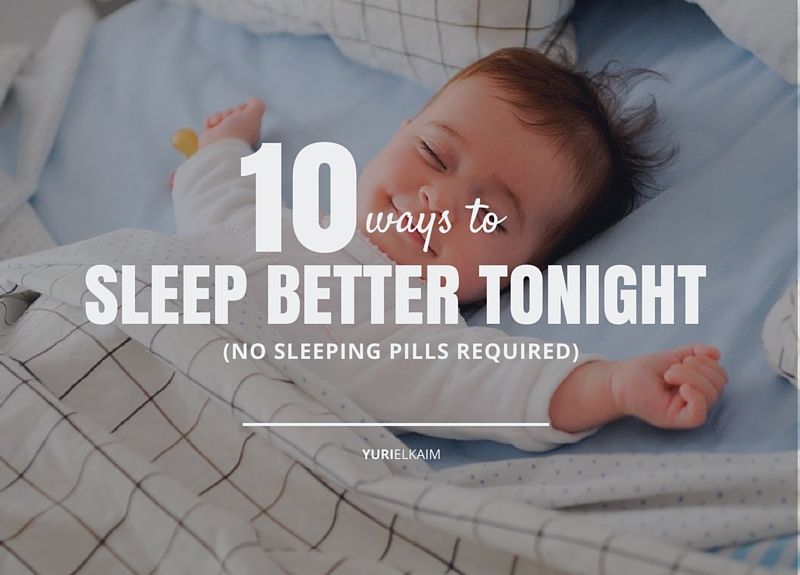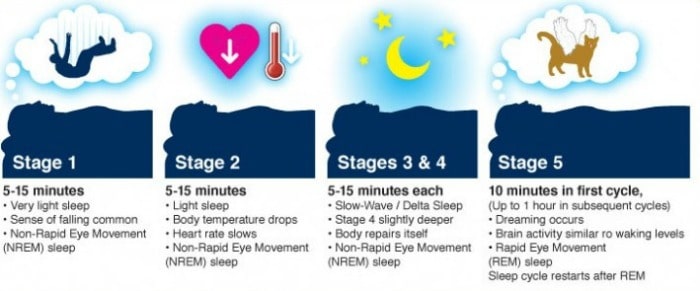In this article
There is nothing quite like getting a full night’s sleep.
How great would it be to wake up feeling refreshed, revitalized, and ready to conquer the world every morning?
You know that saying, “I’ll sleep when I’m dead?”
Well, if people knew the benefits of getting enough sleep, they’d realize there would be a whole lot more life in their days if they made the time get enough Zs at night.
But that’s not happening: millions of people are seriously sleep deprived and/or suffering the debilitating effects of having a low quality night’s sleep (1).
Sleep deprivation carries a host of adverse and chronic side effects including:
- Increased risk of cardiovascular disease
- High blood pressure
- Obesity
- Depression
- Stroke
- Increase risked of accidents
- Depression and anxiety
- Suppressed immune system
And it doesn’t take much sleep deprivation to throw off your system. Research has shown that a single bad night of sleep can be a contributing factor in insulin resistance, which is a precursor for type 2 diabetes (2).
This equates to you metabolically aging more quickly and storing excess body fat – compound that over a longer period of time and you can see that lack of quality sleep can become a serious health issue.
What is Sleep?
Sleep is vital for your physical health, emotional well-being, and mental sharpness.
And it’s not just how much sleep that’s important, but also the quality of that sleep – the patterns of your sleep matter.
I recommend at least 8 hours of uninterrupted sleep each night to ensure optimal health.
When you don’t sleep long enough or well enough, your body begins to release excess stress hormones such as cortisol, which has a huge list of health ramifications I’ll get into later.
But first, let’s explore the 5 stages of sleep (3).
Stage 1 (light sleep)
This is the initial stage of sleep, when your eye and muscle function slows down – you feel like you are floating, and your muscles begin to twitch.
Stage 2
During this stage your eyes stop moving and your brain function slows down, as you prepare to enter deep sleep. Nearly 50 percent of our sleep time is spent in this stage (4).
Stage 3
This is the first part of the deep sleep stage.
Your brain begins to make delta waves and it can be difficult to wake someone up during this stage. Human growth hormone – which is vital in helping your body regenerate and recover – is secreted during this stage.
Stage 4
This is the second part of the deep sleep stage, when the brain is making almost entirely delta waves. Stage 4 is important because it’s the stage that leaves you feeling revitalized and refreshed.
Stage 5
During this stage you experience rapid eye movement (REM). The REM stage should make up about 20 percent of your total sleep time.
When we enter the REM stage, we start to breathe more quickly and shallowly, our eyes move rapidly (hence the name), and our extremities become temporarily paralyzed. Meanwhile, our heart rate and blood pressure rise.
And this is also when we dream.
We normally enter our first REM period about 90 minutes after we fall asleep, and a complete REM cycle takes between 90 and 110 minutes. The longer we sleep, the longer the REM cycles become and the shorter the periods of deep sleep between them.
Here’s an important note about REM sleep: Deprived of it, your body will do what it has to in order to make it up.
That means if it’s disrupted one night, the next night, your body won’t follow the normal sleep stage progression.
What often happens is that as soon as you fall asleep the next time, your body goes right into REM sleep and goes through extra REM periods until you can catch up on the necessary amount of REM sleep (4).
10 Ways to Sleep Better at Night
1. Know the value of a quality sleep
Many people don’t prioritize sleep because they don’t understand the benefits.
Sleep rests your body and your mind and if you aren’t getting enough rest, health problems can result.
Why?
Sleep is an anabolic – or rebuilding – process that enhances the growth and revitalization of the immune and musculoskeletal systems (1).
Quality sleep can slow down the aging process, balance your hormones, boost your metabolism, increase your energy, and improve your cognitive function.
2. Monitor you sleep patterns

In a perfect world you would be able to sleep until you awaken naturally.
To monitor your sleep patterns to get an idea how you actually sleep versus how you think you sleep, it’s a good idea to use a sleep chart and/or write it down in a journal.
Focus on the following questions:
- What time did you go to bed?
- Was your sleep uninterrupted?
- How long did you sleep for?
- Did you fall asleep quickly?
- Did you feel fresh when you woke up?
Compare the answers to these questions over the first week of the monitoring process and you will start to observe a pattern.
3. Get more sun and daylight throughout the day
The hormone melatonin plays an important role in your body’s ability to get a restful night’s sleep (5).
This key hormone is produced in the brain’s pineal gland and its main function is to regulate the sleep-wake cycle.
How much melatonin you produce is related to the amount of both sunlight and daylight you’re exposed to daily.
Getting more daylight or sunlight throughout the day is a magic ingredient for a better night’s sleep due to the surge in natural melatonin levels.
4) Cut Your Screen Time

The artificial blue light your laptop and TV screen emits stimulates your body to produce more daytime hormones like cortisol, which disturbs your body’s natural preparation for sleep (6).
I recommend removing your TV from the bedroom and, instead, reading a book before you go to bed. In addition, try to avoid using a laptop two hours before you hit the hay.
Another key tip: make sure you aren’t sleeping near your mobile phone, as the waves it emits can have a negative impact on your ability to sleep (not to mention your health).
5) Limit your caffeine intake

In fact, I recommend cutting caffeine out of your diet for a number of health reasons – not only does caffeine make it hard to sleep, but it also robs you of energy and creates a cascade of health issues.
6) Keep Your Bedroom Temp Just Right

Also, when it’s time to sleep, your core temperature drops slightly in order to facilitate the whole sleeping process.
That’s why keeping your room temperature just right – so that you are neither too hot nor too cold – will help stop your sleep from becoming disrupted.
Research indicates that the ideal temperature for sleeping is between 60 and 67 degrees F (8).
7) Go to Bed on Time

Research shows your body secretes the optimal amount of hormones and gets the best recovery benefits when you sleep between 10 p.m. and 2 a.m. (9).
This sleep-wake cycle is based on our hunter-gather days, when we went to sleep after sundown because our internal body clock (driven by hormones) instructed us to do so.
Constant exposure to artificial lights and the blue screen has interrupted our natural wake-sleep cycle.
8) Supplement with Magnesium

It helps to improve blood circulation and blood pressure, optimises blood sugar balance, relaxes your muscles, and calms your central nervous system (10).
Because it’s so widely used, your body’s stores of magnesium get depleted quickly, which is why magnesium deficiency is common. Increasing your magnesium load can instantly reduce the mental and physical stress – and also boost your sleep.
9) Limit the Booze

That’s when short-term memories get converted into long-term memories, and this predominantly occurs in the REM stage of sleep.
Alcohol interrupts the REM stage of sleep, which has a negative impact on your mental and physical state because you haven’t fully rejuvenated.
You won’t feel revitalized after a boozy session, and this is one of the main reasons you feel crappy after a night of indulgence.
To avoid this hangover scenario from happening, have a booze curfew and stop drinking around 8 p.m. to allow the alcohol to get out of your system properly before you go to bed. Obviously, this depends on how much alcohol you are drinking.
My recommendation: don’t drink to excess and always drink sensibly.
10) Eat Cherries Two Hours before Bedtime

Cherries belong to the ‘drupe’ family because they contain a stone in the middle (just like plums, peaches, and apricots).
They are particularly high in vitamins A and C, and are packed with antioxidants. In terms of minerals they are a moderate source of zinc, potassium, magnesium and copper.
But the important thing when it comes to sleep is the fact that cherries are high in melatonin, which can help to reduce irritability, calm down the nervous system, reduce headaches, and prevent insomnia.
Many nutritionists advocate eating a small handful of cherries before you go to bed to improve the quality of your sleep (12).
Try to eat them two hours before sleeping as this will allow enough time for them to be properly digested and for them to work their melatonin magic.
Ways to Sleep Better and Feel Better: How to Get Better Restorative Sleep
As you probably noticed, most of the above tips are healthy habits that won’t just help you improve your sleep, but they’ll also help you improve how you feel.
That’s because sleep is a vital part of body’s recovery process. When you improve the recovery, you improve your energy, and that gives you more oomph and vitality to get through your days.




